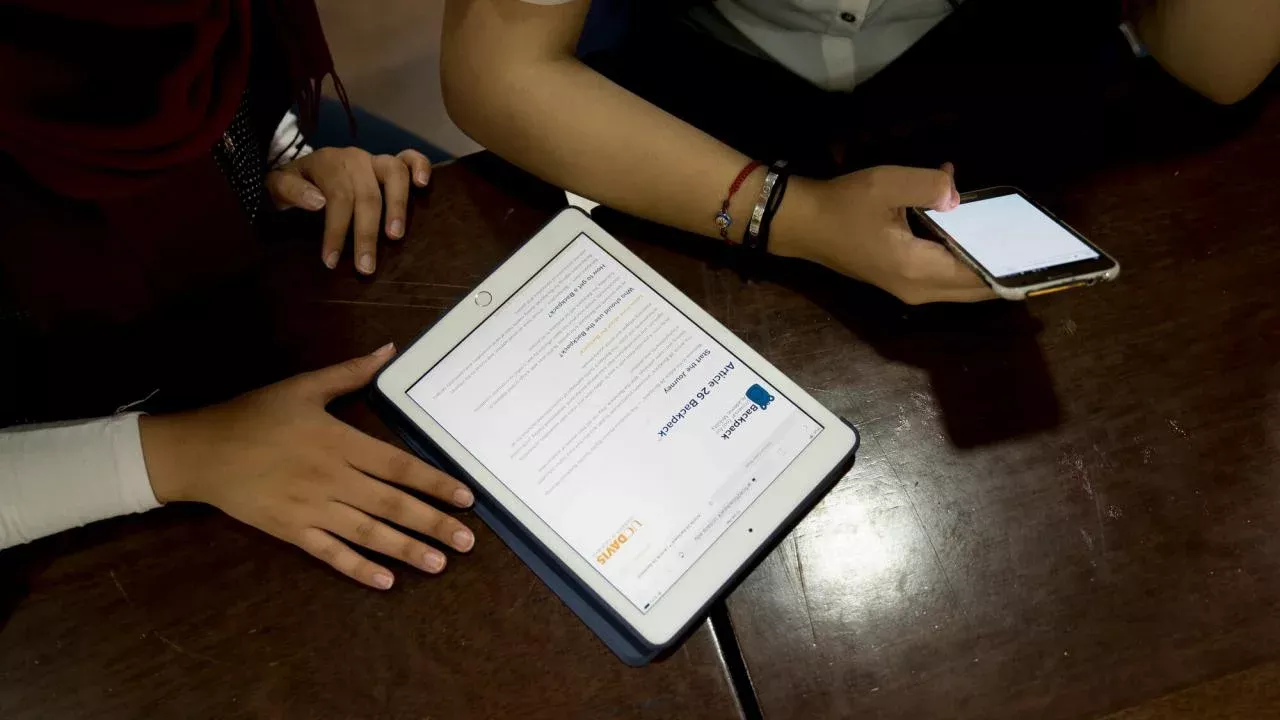
Do you know where your high school diploma is? How about your university transcript?
In times of war and conflict, education-related and professional documents get left behind, lost or destroyed making if difficult if not impossible for refugees and other vulnerable people to enroll in higher education or find work.
Seven years ago, Article 26 Backpack, Backpack for short, was launched from UC Davis, with support from the Ford Foundation, as means to safely store and share these documents with universities, scholarship agencies and even employers. Backpack’s community today exceeds 5,000 members and Backpack is available in nine languages, including Arabic, Spanish, Persian and Ukrainian. Among its leading partners is Kepler, an educational organization founded in Rwanda following the 1994 genocide.
Backpack is driven by a global community of young people across East Africa, the Middle East and California who have been trained by UC Davis to support their global peers in securing their future. Many of these Backpackguides are refugee university students themselves. UC Davis undergraduates in the Interdepartmental Human Rights Studies Program have led this community, known as the Backpack Guide Collective, since 2020.
“Backpack guides have been at the forefront of our university’s advocacy efforts to defend the human right to education for Afghan women and girls, Palestinians and others facing mass atrocity and discrimination,” said Keith David Watenpaugh, professor and director of the human rights program at UC Davis and the founder of Backpack. “I marvel at their dedication and recognize that the success of Backpack has been an outcome of their collective action.”
In these stories, past and current UC Davis-based Backpack guides share how Article 26 Backpack has shaped their futures.
Natalia Stehlin
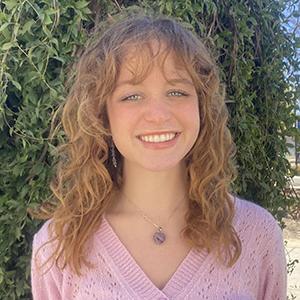
At UC Davis, I enrolled in the first Human Rights Studies class I could. During my sophomore year, I learned about Backpack.
In September 2023, the start of my senior year, we were working to develop Armenian translations to Backpack services and had our first Zoom meeting with students and other Backpack Guides at the American University of Armenia.
“Do you know where high school diploma is?” Professor Watenpaugh asked us.
I felt myself floundering at this question. The UC Davis students in attendance all agreed that our diplomas were most likely somewhere in our mom's desk drawers.
The Armenian students and leaders began to withdraw folders from their backpacks. These folders contained their diplomas and other important documents.
Though document security was something I grasped academically, this was different. I could see in real-time why human rights are so critical: We only know how important human rights are when we don't have them.
Like many others, I had been told that the path to enacting the change you wish to see was through law school, but my work through Backpack has shown me the gaps within our systems that simply cannot be addressed by anything other than empathetic, conscious and evolving humanitarian work.
The human rights program brought me to Davis, but Article 26 Backpack has led me to my future. Now, I am applying to master's programs focused on social science research and human rights, and I hope to dedicate a career to building safe community spaces for women and girls who are in danger.
Natalia Stehlin is a fourth-year sociology major with an emphasis on law and society and a double minor in human rights and gender, sexuality, and women studies. She works as director of communications for Article 26 Backpack.
Kayla Garcia Pebdani
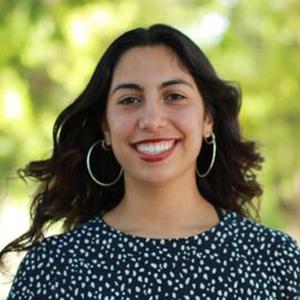
Both my mother and father immigrated to America at a very young age. For my father, it was in hopes of accessing higher education. For my mother, it was about safety and security as she fled during the beginning of the 1979 Iranian Revolution.
I wanted to pursue a career in politics as a way to address the challenges my parents had faced — securing their citizenship, creating financial security, obtaining access to healthcare, and pursuing higher education. My political science classes were insightful and informative, but, after four years of classes, I felt I lacked the tools to transform information into advocacy. Human rights studies provided a framework for identifying and addressing prevailing issues for immigrants and refugees.
Throughout my time at Backpack, I have corresponded with refugees and at-risk displaced people firsthand. I have received messages from young women in Afghanistan who are unable to continue their education. For many refugees, educational opportunities are scarce, and, as a result, higher education is a privilege.
Education not only creates financial security and leads to contributions to society, but it also provides a means for rebuilding. Backpack provides refugees with tools to succeed after resettlement.
Witnessing the impact we have had on students has led me to pursue a career in human rights instead of politics. Because of my experiences with Backpack, I hope to continue my efforts in helping people like my parents thrive — not just survive.
Kayla Garcia-Pebdani is a fourth year political science—public service major with a double minor in professional writing and human rights. She is the current co-lead for Backpack correspondence. Kayla will be applying to graduate programs this fall in public policy and law.
Emma Tolliver
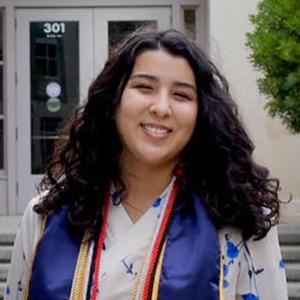
It was right after the Russian invasion of Ukraine in 2022 that we decided we had to do something. Backpack had resources. We had tools. We had this platform that can help people. Now we had to figure out how to make it accessible.
This was during my junior year at UC Davis and I had just begun volunteering with Article 26 Backpack. It was one of the first times I was seeing a crisis in the world and didn’t feel completely useless. I was also extremely privileged as an American, and I knew there was something I could do in my position as a university student.
We spent a month making sure that we could get the Backpack platform translated fully into Russian and Ukrainian. I think that's the fastest we had done a translation of the entire website, from having nothing ready to a fully functioning Ukrainian and Russian version of Backpack.
With a couple other members of the Backpack executive team, I was able to meet with people at a university in Germany that was offering scholarships to Ukrainian refugees. We discussed the students who were expected and how we could offer credential repair and other services in addition to the Backpack tool.
I had no idea that, because of this work we were doing, I would be featured on KCRA television, having conversations with stakeholders at USAID or presenting at the 2023 UNESCO World Forum on Human Rights in Argentina.
Through this work, I came to an important realization: I want to do work that empowers others to take control of their lives. I don’t want to save anyone, and, more importantly, I know that I cannot save anyone. What I can do is extend a hand to lift people up and support them as they save themselves.
Emma Tolliver is a recent UC Davis graduate with a double major in English and political science - public service and a minor in human rights studies. Currently, Emma is serving an AmeriCorps term in Stockton, California, as a Youth Empowerment Fellow. In August, she will begin law school, studying community lawyering.
Lauren Cegelski
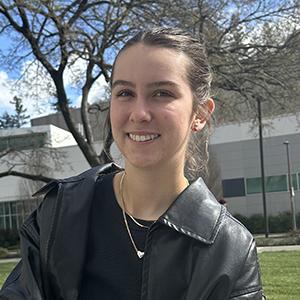
It was early in fall 2023 when we started to see a little news coming out of Azerbaijan, where tensions were increasing in the Nagorno-Karabakh region. The region used to be part of the Armenian state following its separation from the Soviet Union. As a result, there are ethnic Armenians still living there.
Things just didn't look very stable. It wasn't a very well-covered event, but there was enough coverage to raise concern for the students who could be displaced. Then there was a kind of go-ahead for Azerbaijani forces to start moving ethnically Armenian people out of this territory and into Armenia. That raised a lot of red flags.
The interesting part about this dispute was that people in Armenia were hesitant to even acknowledge that this was an ongoing issue. It was one of those events where you had to use all of your training as a Backpackguide to tread lightly and focus on our goal: providing our services to those who might need it.
We aimed our efforts towards those who had already been displaced. A lot of the students from Nagorno-Karabakh were going to be integrating into the universities in Armenia. With support from Professor Keith Watenpaugh and Professor Heghnar Watenpaugh, we were able to establish a team of students at the American University in Armenia.
We started having meetings every Tuesday morning at 7 a.m. PST. It was kind of brutal having to wake up and get on those meetings but we all wanted to move forward so that people around the university would know this was an option.
Now we know that it wasn't the level of urgency that we thought. People were let back into the region after a few months. But you always want to be prepared.
It was, honestly, so great to support people my age who were going through something that I could never imagine. Being able to work with students from all over the world who were pursuing the same degrees has brought a sense of humanity to what we do. We established great connections — and we still follow each other on Instagram.
Lauren Cegelski, is a third-year international relations and economics double major who is also working toward a human rights minor. She participates in the University Honors Program and is the partnerships and strategic outreach coordinator for Article 26 Backpack.
Heavenly Frazier
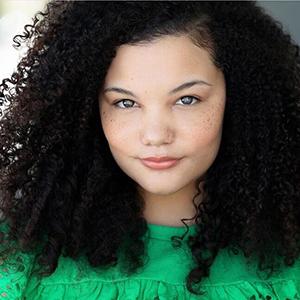
I work on the Article 26 Backpack emails team, which means I'm constantly categorizing, responding to and answering questions about Backpack. We sit together in a group to think about how to make sure people don't feel forgotten because we have thousands-upon-thousands of emails coming in every single month.
A concept that Professor Watenpaugh brings up in class is called “the numbness of numbers.” After a certain point in a tragedy, humans can't comprehend the amount of people who have died by it. We can understand 10 people killed in a car crash but we can't understand 1,000 people killed in a bombing.
The messages from Afghanistan always hurt my heart because they come from women — and even teenagers who are my age — and they tell you things that you don't expect, such as: “I have two siblings and I work to support them,” “I can't afford to leave the country, and the Taliban government has shut down any meaningful access to education,” “I can't leave my house,” and “I can't wear what I want.”
You think, “Here I am, sitting at a prestigious university, and I complain about these things in my life when there are people who work for less than $10 a month.” I read these stories from women in Afghanistan and it breaks my heart because I can imagine myself in that position, and I don't want anyone to feel that way.
I'm also the social chair at Backpack, which is my favorite part of the job.
We went to Woodstock’s for trivia night, and I coordinated all of that. We had a bigger turnout than I expected. We had so many great laughs, so much fun. We didn't win trivia night, but I felt like it was a great step forward in establishing this connection that we didn’t have seeing each other once a week. It was actually where everyone started to be friends.
This is an instrumental part of Backpack because we do work with very heavy topics. We work with refugees or people who are escaping war and genocide. Having these little moments where we can just interact as friends reinforces my love for this community and the unconditional love it's given me.
Heavenly Frazier is a second-year English major with a minor in human rights studies. Originally from Newport Beach, California, she will be executive of correspondence for Article 26 Backpack for the 2024-25 academic year.
Dheera Dusanapudi
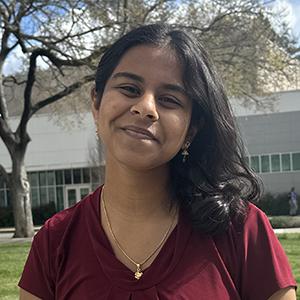
I wasn't part of the Article 26 Backpack team when Kabul fell to the Taliban, but in the years since we have seen women and girls becoming increasingly excluded from education and even put under threat of death for pursuing that education. They send us messages discussing the threats they face and the backlash they received for protesting on behalf of woman's rights. Many are desperately trying to leave the country.
Especially as someone who comes from an immigrant family that really values higher education, I’m really struck by the level of threat these women are facing as well as their immense determination to pursue their education.
We get a lot of emails from women who ask us to help, and what we can do in that moment is provide them vouchers for English tests to prove their fluency and credential evaluations so their academic record can be reconstructed for an application to another university. I’ve seen how each of these can transform their lives.
I always wish we could do more. In these situations, it feels like you have a small voice, and on some level, that’s true. We have students who ask for financial support or admission to UC Davis or protection, and we have to be very clear that those are not things we can do. We're not trying to give anyone false hope.
It's very difficult to read those emails and know that there is a limit to the support we can provide. I think that, at Backpack, we are always looking at how we can expand our resources within our mandate. Sometimes we just try to bear witness if there's nothing we can materially provide.
It is easy to feel as if we have a very small role to play in the grand world of human rights and an even quieter voice. I’ve spent a lot of time thinking about what the program can provide, both to our global peers and to those of us who staff it.
All human rights advocates, regardless of age or background, have a vital role to play in protecting the rights of their global peers. We have the opportunity to do something about the worrying headlines in the news, and to draw strength and support from our remarkable community of advocates. As students, we support students who share our talents and dreams.
Dheera Dusanapudi is a third year international relations and religious studies double major also pursing a minor in human rights. She served as student director of Article 26 Backpack and will continue in that role next academic year.
More on Backpack:
https://backpack.ucdavis.edu/more-about-backpack
https://globalaffairs.ucdavis.edu/a26backpack
https://www.ucdavis.edu/curiosity/news/refugees-reclaim-human-rights-with-technology
